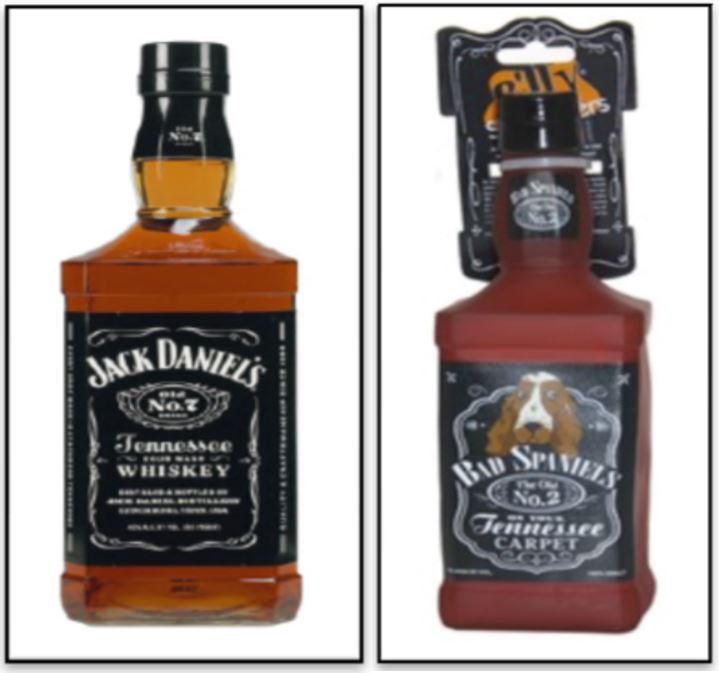Airs Aromatics, a purported owner of an ANGEL DREAMS trademark, filed a lawsuit against Victoria’s Secret alleging breach of contract claims and requesting cancellation of Victoria’s Secret’s registered DREAM ANGELS trademark.
Comments closed
Not only Russian copyright, broadcast and digital law
Airs Aromatics, a purported owner of an ANGEL DREAMS trademark, filed a lawsuit against Victoria’s Secret alleging breach of contract claims and requesting cancellation of Victoria’s Secret’s registered DREAM ANGELS trademark.
Comments closed
 The question at issue here is whether a term that takes the form “generic.com” is generic in the ordinary course. In the Breyer’s view, appending “.com” to a generic term ordinarily yields no meaning beyond that of its constituent parts. Because the term “Booking.com” is just such an ordinary “generic.com” term it is not eligible for trademark registration.
The question at issue here is whether a term that takes the form “generic.com” is generic in the ordinary course. In the Breyer’s view, appending “.com” to a generic term ordinarily yields no meaning beyond that of its constituent parts. Because the term “Booking.com” is just such an ordinary “generic.com” term it is not eligible for trademark registration.
Comments closed
 VIP Products sells the “Bad Spaniels Silly Squeaker” dog toy, which resembles a bottle of Jack Daniel’s Old No. 7 Black Label Tennessee Whiskey, but has light-hearted, dog-related alterations. For example, the name “Jack Daniel’s” is replaced with “Bad Spaniels,” “Old No. 7” with “Old No. 2,” and alcohol content descriptions with “43% POO BY VOL.” and “100% SMELLY.”
VIP Products sells the “Bad Spaniels Silly Squeaker” dog toy, which resembles a bottle of Jack Daniel’s Old No. 7 Black Label Tennessee Whiskey, but has light-hearted, dog-related alterations. For example, the name “Jack Daniel’s” is replaced with “Bad Spaniels,” “Old No. 7” with “Old No. 2,” and alcohol content descriptions with “43% POO BY VOL.” and “100% SMELLY.”
Comments closed
A generic name – the name of a class of products or services – is ineligible for federal trademark registration. Booking.com, an enterprise that maintains a travel-reservation website by the same name, sought federal registration of marks including the term “Booking.com.”
Comments closed
In 1995, Steven Silvers created the Googles brand. Two years later, he registered the Googles trademark and the internet domain name www.googles.com. The website launched in 1998 as a children’s education and entertainment website. That year, the search engine Google adopted the Google name. Subsequently, in 2005, Silvers sued Google for trademark infringement.
Comments closed
The Lanham Act provision governing remedies for trademark violations, makes a showing of willfulness a precondition to a profits award in a suit under §1125(c) for trademark dilution, but §1125(a) has never required such a showing. Reading words into a statute should be avoided, especially when they are included elsewhere in the very same statute.
Comments closed
An attempt to simultaneously sell a restaurant and license associated intellectual property has led to ten years of litigation in state and federal court. Michael Shwartz and his family owned and operated the Camellia Grill restaurant on Carrollton Avenue (the “Carrollton restaurant”) for decades. He operated the business – the single restaurant – through a wholly owned corporation, Camellia Grill, Inc. In 1999, Shwartz formed CGH for the sole purpose of owning federally registered Camellia Grill trademarks.
Comments closed
In Russia there is famous natural spring – Essentuki. The Russian mineral water under the brand Essentuki is produced there. Only couple manufacturers can use this brand simply because they have productions in Essentuki. They manufacture bottled water and sell it under the brand “Essentuki”. But it does not mean that other companies don’t want to use the known brand. They also produce water, despite the fact that their manufacturing located far from Essentuki.
Comments closed
Almost all researches state that almost more than half of products sold in Russia are counterfeited. The Russian news channel has reported that manufacturers and sellers of counterfeited shoed did not share their profits with right holders of trademarks. The…
Comments closedAfter duly research the Russian ministry of trade and industry has names the most popular category of counterfeits in Russia – the products of light industry. 20% of almost all products of this industry are counterfeited; the monetary assessment counts up to 725 billion Roubles in 2017.
Comments closed